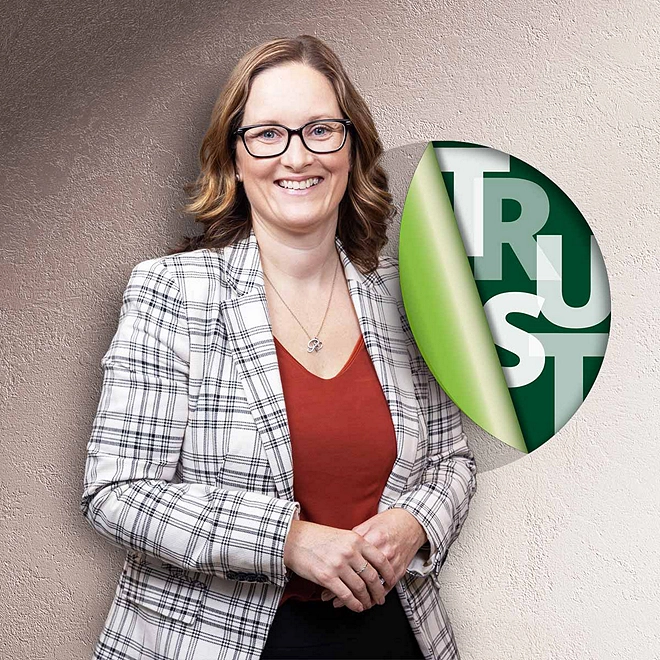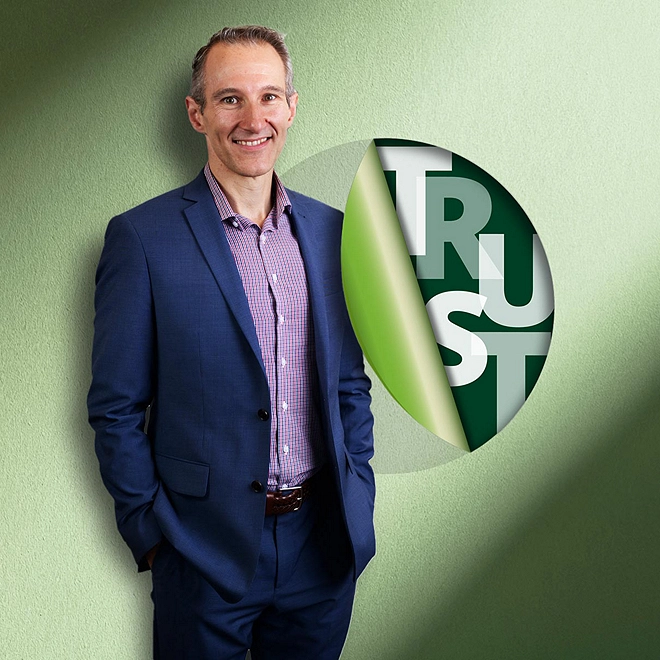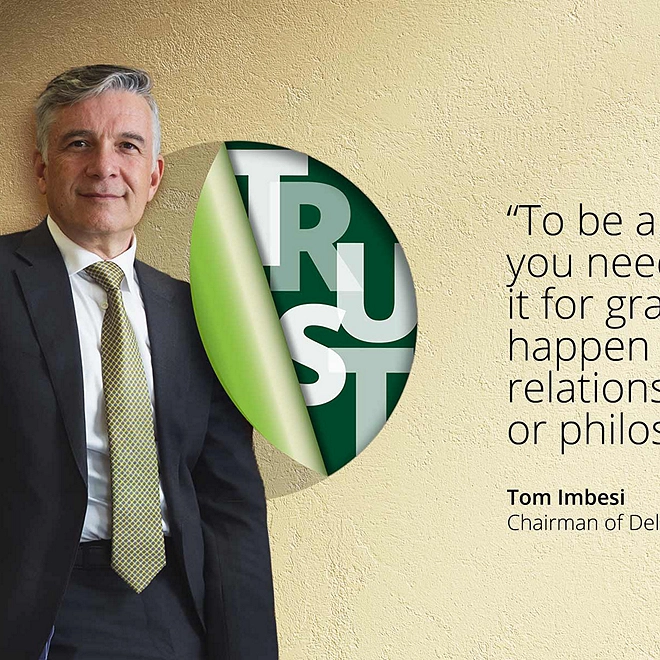Michelle Hardie
Head of strategy, Operations, Enablement and Executive Engagement for Australia and New Zealand at Amazon Web Services (AWS)
"Trust is authenticity integrity and collaboration in everything you do and represent - both professionally and individually."
Michelle Hardie is Head of Strategy, Operations, Enablement and Executive Engagement for Australia and New Zealand at Amazon Web Services (AWS) and the President of Women@Amazon, Australia and New Zealand. Michelle is passionate about driving meaningful change for customers, partners and the community.
For Michelle, trust is authenticity, integrity and collaboration in everything you do and represent – both professionally and individually
Ingrained in the Amazon Leadership principles, ‘Earn Trust’ is core to the company’s bold mission: to be Earth’s most customer-centric company. Trust is multi-dimensional in a company of this scale. Earning trust with customers sits alongside earning trust with employees, partners and communities.
But this interview wouldn’t be true to Amazon’s culture if we didn’t start with customers, just as the company does.
As Michelle says, “we need to earn the trust of our customers every second, every hour, and every day. It’s something we live and breathe on a daily basis as part of how we think about the way in which we operate.”
Michelle references the game of Jenga, a curious yet insightful analogy, for trust. "If you imagine that tower, it’s slow and challenging to build, but it’s also easily destroyed. One little block removed can de-stabilise the whole thing. And that block could be a piece of technology, it could be an employee, it could be something we haven’t achieved, or an outcome not delivered."
Standing up for the customer, literally
There are over 250 products and services on the AWS platform. Michelle says, “90% of what we build is driven by what our customers tell us matters. The other 10% are things we hear from our customers, where they may not articulate exactly what they want, but we try to read between the lines and invent on their behalf.” She describes this process of originating products, services and features as working backwards from our customers’ challenges. A disciplined approach strengthened and substantiated by a truly collaborative discussion that welcomes fresh perspectives.
Rather than beautifully designed PowerPoint slides, ideas are presented as 6-pager written narratives, which help to describe the opportunity, mitigate bias and provide decision affirmation. A simple outline of the current situation is shared, including the challenges and the initiatives to address those challenges. No one has read the document beforehand, so the first part of the meeting is in thoughtful silence. People are invited to annotate the document with questions and feedback, which leads to an open discussion to find the best course of action together.
"It’s not about me as a leader having the only solution. Encouraging diverse perspectives delivers an even better end result. This collaboration engenders trust between team members and trust in the process."
Conceptualising the idea in a written press release format is another way to ‘pressure test’ the thinking and the new idea’s potential application and its ultimate ambition. Rather than reams of documentation and slides, the entire idea proposition is captured so teams can make a quicker decision to proceed, saving time, money and team resources. These ideas can come from anywhere within the business thanks to a flat hierarchy, but once they have buy-in, they percolate through the relevant teams to be improved and executed. “We can't rely on good intentions. We need mechanisms. You need to think about the inputs and the outputs. To evaluate, then iterate.”

AWS meeting rooms all have a red chair to represent customers
All ideas put the customer first - meeting rooms have a red chair, a physical prompt to represent customers, which could be a bank, a government department, an IT team or a parent. Literally and metaphorically, teams are standing up for the customer. The red chair sits quietly at the table and is never to be used (even if the room is packed).
From the cloud to blue sky thinking
With an internal culture wired to solve problems and a leadership team empowered to take on responsibilities outside their roles, Michelle is proud of one specific challenge that many at Amazon are hoping to solve.
"Working with an organisation called AlphaBeta, research showed we need 6.5 million digitally skilled workers by 2025 with 3.7 million here in Australia. The challenge is, how do we skill, engage, and inspire younger generations, particularly young girls?"

AWS Think Big Space was launched at Blacktown Girls High School
AWS is helping to solve the pipeline challenge by supporting the great work of groups like Tech Girls Movement Foundation and Code Like a Girl, as well as building Australia's first AWS Think Big Space at Blacktown Girls High School. The company is repurposing a room, providing laptops for robotics equipment, and mobilising mentors and coaches to inspire the girls.
"Young girls often think that a career in technology is sitting on a computer, writing code 24/7. This is far from the truth. We need to change those perceptions. The more we talk about the different pathways – including education and professional experience – the better."
Enduring trust
Ensuring that a culture is constantly striving to earn trust means a heightened focus on recruitment. According to Michelle, the company looks for long-term thinkers, people who look around corners and share a passion for invention. People who demonstrate patterns of continuous improvement in their work, always striving to innovate on behalf of customers. In return, the goal is for them to enjoy the very best employee experience, because “trusted employees earn more trust with clients”.
Earning trust is an ever-constant theme in the organisation, and not surprisingly this conversation with Michelle. It’s part of the ‘Day One’ culture of Amazon, a catch cry that evokes the power of constant evolution, never relying on past glories, imbedding the startup enthusiasm in every single day.
Paradoxically, ‘Day One’ is a long-term strategy. It fuels a company ethos, shapes a culture of innovation, and reinforces a belief there is always more to do, never settling, with even more trust to earn for their customers.




